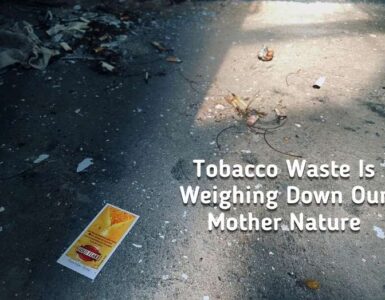Wednesday 27 May 2020 (Paris, France) — Ahead of World No Tobacco Day next Sunday, 31 May, The Union has today publicly advocated for the prohibition of the sale of e-cigarettes and heated tobacco products (HTPs) in low- and middle-income countries (LMICs), which are home to more than 80 percent of the world’s smokers. The Union’s support of the ban is based on the release today of its new position paper, ‘Where bans are best: Why LMICs must prohibit e-cigarettes and heated tobacco product sales to truly tackle tobacco’.
The Union´s position paper is released as this year’s World No Tobacco Day theme turns the spotlight on the tobacco industry’s targeting of a new generation of young people with cigarettes and novel tobacco products.
The paper both analyses scientific evidence documenting the health impact of novel nicotine products and cautions that governments need to be extra careful in the face of the commercial incentives driving novel tobacco product producers to hook new users and expand the nicotine market in their own countries.
“The vast majority of LMICs are still contending with very serious tobacco epidemics,” said Dr Gan Quan, Director of Tobacco Control at The Union. “Introducing new, highly addictive products into these environments will overwhelm governments, stress already overburdened health systems, and distract from urgent implementation of the World Health Organization (WHO)’s Framework Convention on Tobacco Control (FCTC) and related MPOWER measures.”
E-cigarettes and HTPs are enormously lucrative businesses; the former was worth US $15 billion in 2018, and HTPs are expected to be worth nearly US $18 billion by 2021.
In its 2019 report on the global tobacco epidemic, the WHO noted that there is “insufficient evidence to support the use of [e-cigarettes] as a population-level tobacco cessation intervention to help people quit conventional tobacco use” and also noted that these products are “undoubtedly harmful.”
To date, the discourse on the net public health impact of e-cigarettes and HTPs has been limited to and largely focused on high income countries. ‘Where bans are best’ expands the narrative, emphasizing that novel nicotine product policy must be context specific. In low- and middle- income countries, rapid roll out of new products will have deleterious effect, particularly for young people.
Low- and middle- income countries have traditionally been a playground for big tobacco and are presently home to more than 80 percent of the world’s smokers.
India has made tremendous progress in tobacco control in recent years. However, every year, more than 1.3 million of its people are killed by tobacco-caused disease. The tobacco industry is actively pursuing new strategies. Major global tobacco companies like British American Tobacco (BAT), Phillip Morris International and their domestic affiliates have introduced these technologies in India. However, the ban announced in September 2019 has curbed the ENDS trade, however it still does persist through illegal means.
“Use of electronic cigarettes has increased rapidly across the countries of the region and globally” said Dr Rana J Singh, Deputy Regional Director for the South East Asia region at The Union. Studies show that the vapour generated from electronic cigarettes has potential harmful toxins with long-term carcinogenic and respiratory function effects. Government of India has taken a historic step by enacting Prohibition of E-cigarette Act 2019 and thus protecting its youth from another onslaught of addiction. He further emphasized that policy makers from countries of the region should embrace the precautionary principal, which urges preventative action. For LMICs, that means e-cigarette and HTP sales bans.”
“Electronic cigarettes and other new technologies that deliver nicotine are as dangerous and there is nothing safe about them. Youth are being misled by an unscrupulous industry which wants children and youth to get addicted to nicotine for life. Electronic cigarettes are banned, yet there is illicit sale through websites and vendors across India. We urge central and state governments and agencies to take strong enforcement measures to ensure the ban effective” says Dr Nirmalya Mukherjee, Director of MANT.





Add comment